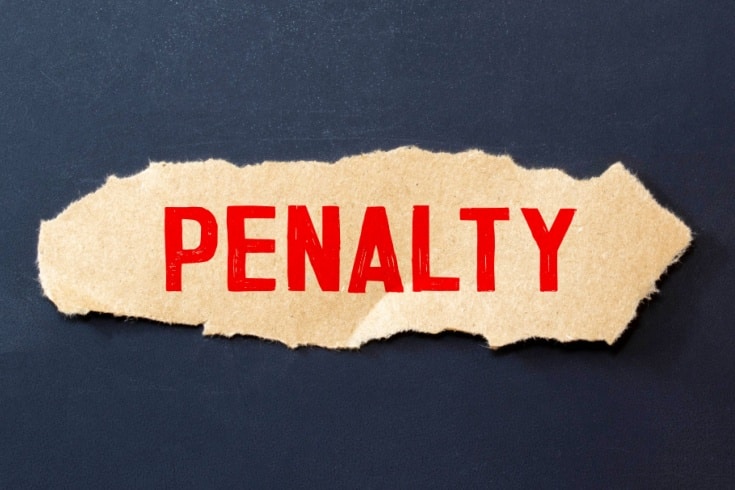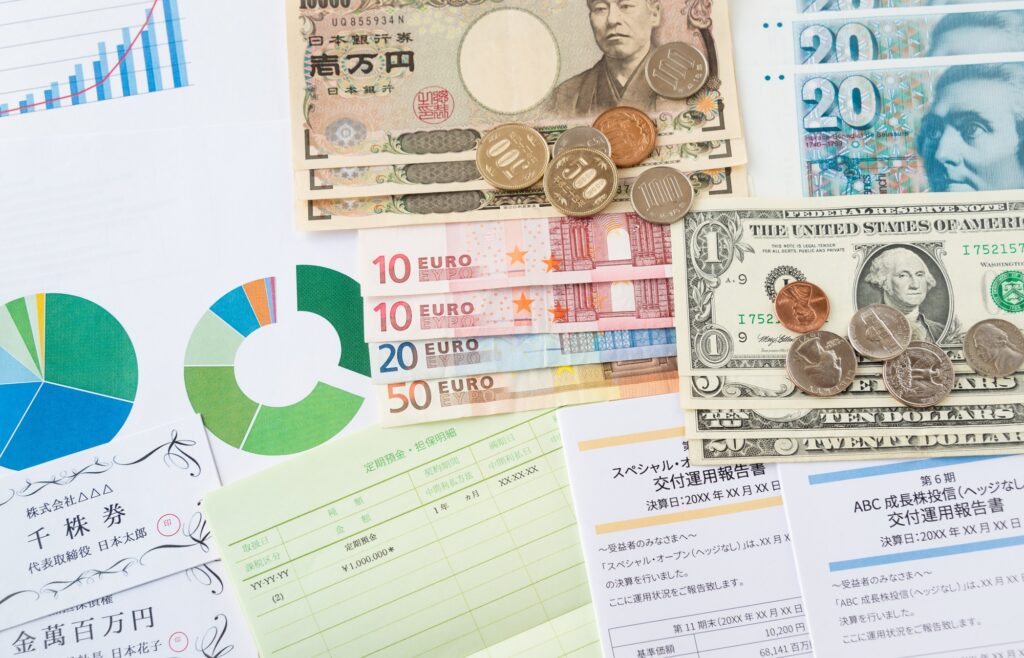Provider Liability Limitation Law Becomes “Information Distribution Platform Measures Act (Jo-Pura-Ho)”: Explaining the Key Points of the Amendment

Nowadays, defamation on the Internet has become a serious issue. It’s not just celebrities who are affected; influencers and even ordinary individuals are facing the exposure of their personal information and becoming targets of slander, which has escalated into a significant social problem.
On the other hand, despite the high demand from victims for a system to remove such posts, there has been a lack of progress in institutionalizing this process. In response, amendments have been made to demand faster and more transparent handling of defamation cases from service providers.
Here, we will provide a detailed explanation of the amendments to the Japanese Provider Liability Limitation Law, which were passed and proclaimed during the regular session of the National Diet in Reiwa 6 (2024).
Challenges of the Provider Liability Limitation Law
To prevent defamation and swiftly provide relief to victims, the “Provider Liability Limitation Law” (official name: Act on Limitation of Liability for Damages of Specified Telecommunications Service Providers and Disclosure of Sender Information) had been established. However, in May of Reiwa 6 (2024), a new law was enacted. This is the “Act on the Handling of Rights Infringements, etc., in Specific Telecommunications Information Distribution,” commonly known as the “Information Distribution Platform Handling Act (Joho Pura-ho).”
According to the statistics from the “Illegal and Harmful Information Consultation Center,” operated by the Ministry of Internal Affairs and Communications, the number of consultations received from 2015 to 2022 has exceeded 5,000 each fiscal year. Of the 5,745 consultations in fiscal year 2022, 3,852 cases, or 67.0%, were inquiries about how to request content removal.
The following issues have been identified with the removal of defamation and other harmful content:
- The point of contact for removal requests is unclear
- Leaving posts unattended allows information to spread
- Even after requesting removal from the platform operator, there is no notification, leaving it unclear whether the content has been removed
- The platform operator’s guidelines for removal are abstract, and the criteria are unclear
Amendments to the Act on Regulation of Transmission of Specified Electronic Communications

In response to these challenges, we have amended the existing Provider Liability Limitation Law to include new regulations targeting large-scale platform operators. The key points of this amendment are the obligations imposed on large-scale platform operators for “expediting responses” and “transparency in operational status.”
The large-scale platform operators subject to the new regulations are referred to as “large-scale specified electronic communications service providers,” which are businesses designated by the Minister of Internal Affairs and Communications as providers of large-scale specified electronic communications services (Japanese Information and Communications Network Act, Article 2, Paragraph 14 and Article 20, Paragraph 1).
Although the criteria for designating businesses as large-scale specified electronic communications service providers are determined by Ministry of Internal Affairs and Communications ordinance, they are judged based on “average monthly number of senders” or “total average monthly number of senders” (Japanese Information and Communications Network Act, Article 21, Paragraph 1, Item 1).
However, not all businesses that meet the sender number requirements are uniformly designated as large-scale specified electronic communications service providers. It is also required that it is technically possible to take measures to prevent the transmission of infringing information, and that there is a low risk of rights infringement occurring (Japanese Information and Communications Network Act, Article 21, Items 2 and 3).
Therefore, it is considered that the new regulations under the Act on Regulation of Transmission of Specified Electronic Communications will apply to operators of large-scale SNS and anonymous bulletin boards such as X (formerly Twitter) and Facebook.
Obligations of Major Platform Operators

Under the Japanese Act on the Regulation of Transmission of Specified Electronic Communications (情報流通プラットフォーム対処法), major platform operators, who are large-scale specified telecommunications service providers, are required to fulfill the following obligations:
- Notification to the Minister of Internal Affairs and Communications
- Publication of methods for accepting claims from infringement victims
- Conducting investigations related to infringing information
- Appointment and notification of infringement information investigation specialists
- Notification to the applicants of transmission prevention measures
- Publication of standards and other criteria related to the implementation of transmission prevention measures
- Notification to the sender when transmission prevention measures are taken
- Publication of the status of implementation of transmission prevention measures
Notification to the Minister of Internal Affairs and Communications
Large-scale specified telecommunications service providers must, within three months from the date of designation, notify the Minister of Internal Affairs and Communications of their “name or corporate name and address, and in the case of a corporation, the name of its representative,” as well as “in the case of a foreign corporation or organization, or an individual residing abroad, the name or corporate name and domestic address of their representative or agent in Japan,” as prescribed by the Ministerial Ordinance of the Ministry of Internal Affairs and Communications (Japanese Telecommunications Business Law (情プラ法) Article 22, Paragraph 1).
Furthermore, in the event of any changes to the notified matters, they must promptly report such changes to the Minister of Internal Affairs and Communications (Japanese Telecommunications Business Law (情プラ法) Article 22, Paragraph 2).
Publication of Methods for Accepting Claims from Infringement Victims
Large-scale specified telecommunications service providers must establish and publish methods for infringement victims (“the aggrieved parties”) to submit requests for measures to prevent the transmission of infringing information, as prescribed by the Ministry of Internal Affairs and Communications Ordinance, in accordance with the Japanese Act on the Protection of Personal Information (Act No. 23, Article 1).
These methods must enable submissions using electronic information processing systems, must not impose an excessive burden on the person wishing to make a submission, and must ensure that the date and time of receipt of the submission are clear to the person making the submission (Japanese Act on the Protection of Personal Information, Article 23, Paragraph 2).
Conducting Investigations Related to Infringing Information
Large-scale specified telecommunications service providers must promptly conduct the necessary investigations when a victim requests measures to prevent the transmission of infringing information, to determine whether the circulation of the infringing information in question unjustly violates the rights of the victim (Japanese Act on the Protection of Personal Information, Article 24).
Appointment and Notification of Infringement Information Investigation Specialists
Large-scale specified telecommunications service providers must appoint Infringement Information Investigation Specialists from individuals with sufficient knowledge and experience in handling rights infringement issues to properly conduct investigations that require specialized knowledge and experience (Japanese Act on the Protection of Personal Information, Article 25, Paragraph 1).
The number of these specialists must meet or exceed the requirements set by the Ministry of Internal Affairs and Communications, which are based on the average monthly number of senders or the total monthly number of communications, as well as the type of service provided (Japanese Act on the Protection of Personal Information, Article 25, Paragraph 2).
Notification to Applicants of Measures to Prevent the Transmission of Infringing Information
Large-scale specified telecommunications service providers, upon receiving a request, must decide whether to implement measures to prevent the transmission of infringing information based on the results of their investigation. Except for when there is a legitimate reason, they are required to notify the applicant within a period defined by the Ministry of Internal Affairs and Communications, which should not exceed 14 days from the date the request was received, as to whether or not they have taken such measures (Japanese Act on the Limitation of Liability for Damages of Specified Telecommunications Service Providers, Article 26).
Until now, there have been platforms that, even after a deletion request was made, did not send a confirmation of receipt, leaving applicants uncertain whether their request had been accepted. This measure addresses such grievances.
Publication of Standards for Implementing Transmission Prevention Measures
Large-scale designated telecommunications service providers are allowed to implement transmission prevention measures only if they adhere to the standards they have established and published. These standards must be published a certain period before the date on which the transmission prevention measures are to be implemented (Japanese Act on the Protection of Personal Information, Article 27, Paragraph 1).
In establishing these standards, providers must ensure that the content of the standards conforms to all of the following (Japanese Act on the Protection of Personal Information, Article 27, Paragraph 2):
- The types of information subject to transmission prevention measures should be as specifically defined as possible, according to the reason the large-scale designated telecommunications service provider became aware of the circulation of such information.
- In cases where service suspension measures are to be implemented, the standards for carrying out such measures should be as specifically defined as possible.
- The standards should be described using expressions that are easily understandable to the sender and other related parties.
- Consideration should be given to the consistency with laws and regulations that establish a duty of effort regarding the implementation of transmission prevention measures.
Notification to the Sender When Transmission Prevention Measures are Implemented
Large-scale specified telecommunications service providers must, as a principle, promptly notify the sender of information whose transmission has been prevented by such measures, of the fact and the reasons for the implementation of the transmission prevention measures. They must also take steps to ensure that the sender can easily become aware of this. Furthermore, if the transmission prevention measures are taken in accordance with the criteria set forth in Article 27, Paragraph 1, the provider must clarify the relationship between the measures and the criteria in their reasoning (Japanese Act on the Protection of Personal Information, Article 28).
Publication of Measures to Prevent Unauthorized Transmission
Large-scale specified telecommunications service providers must publish the following items annually, as stipulated by the Ministry of Internal Affairs and Communications ordinance, in accordance with Article 29 of the Japanese Act on the Protection of Personal Information (Act No. 57 of 2003) (the “Personal Information Protection Act”).
- Status of acceptance of requests under Article 24
- Status of notifications carried out under the provisions of Article 26
- Status of measures taken for notifications and other actions under the provisions of Article 26
- Status of implementation of measures to prevent unauthorized transmission
- Self-evaluation conducted on the matters listed in each item of Article 26
- Other necessary items prescribed by the Ministry of Internal Affairs and Communications ordinance to clarify the status of measures that large-scale specified telecommunications service providers should take based on the provisions of this chapter
Recommendations, Orders, and Penalties

The Japanese Information Distribution Platform Regulation Law includes provisions for recommendations and orders, as well as penalties, which were not present in the Japanese Provider Liability Limitation Law.
The Minister of Internal Affairs and Communications can recommend necessary measures to correct violations when it is recognized that a large-scale designated telecommunications service provider is in breach of the following provisions (Article 31, Paragraph 1 of the Information Distribution Platform Regulation Law):
- Publicizing the method for accepting claims from infringement victims
- Appointment and notification of infringement information investigation specialists
- Notifying the applicant of measures to prevent transmission
- Publicizing the standards related to the implementation of measures to prevent transmission
- Notifying the sender when measures to prevent transmission have been taken
- Publicizing the status of implementation of measures to prevent transmission
Furthermore, if no valid reason exists for not implementing the measures related to the recommendation, an order can be issued to enforce such measures (Article 31, Paragraph 2 of the Information Distribution Platform Regulation Law).
If an order is violated, the offender may be subject to imprisonment for up to one year or a fine of up to one million yen (Article 36 of the Information Distribution Platform Regulation Law).
Summary: Improvements in Handling Defamatory Post Removals Under the Provider Liability Limitation Law
The Provider Liability Limitation Law is set to undergo a significant revision, including changes to its name. As a result, large platform operators will be required to expedite their response processes and enhance the transparency of their operational status.
The enforcement date for the new “Information and Communications Platform Law” is to be determined by a government ordinance within one year from the date of promulgation (May 17, Reiwa 6 (2024)).
Until now, the removal of harmful posts directed at businesses was left to the voluntary efforts of the operators. However, with the clarification of the point of contact for removal requests and the mandatory notification, we can expect an improvement in the operators’ responses.
Guidance on Measures by Our Firm
Monolith Law Office is a law firm with extensive experience in IT, particularly in both the internet and legal fields. In recent years, information related to reputational damage and defamation spread online has caused serious harm as a “digital tattoo.” Our firm provides solutions to counteract the effects of “digital tattoos.” Details are provided in the article below.
Areas of practice at Monolith Law Office: Digital Tattoo[ja]
Category: General Corporate
Tag: General CorporateIPO





















